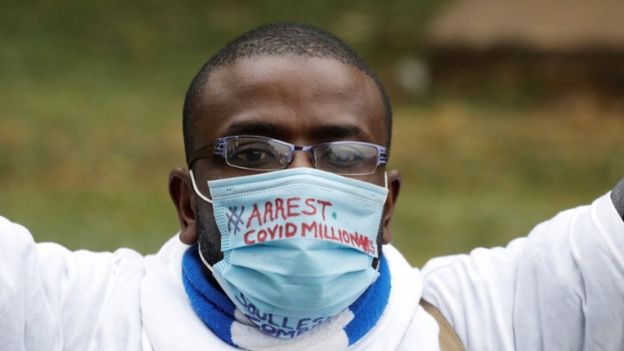In a major development, the head of the World Health Organization (WHO) had said that he hopes the coronavirus pandemic will be over in under two years, reports BBC.
Taking cue from past pandemics
Speaking in Geneva, Tedros Adhanom Ghebreyesus said the Spanish flu of 1918 had taken two years to overcome.
But he added that current advances in technology could enable the world to halt the virus “in a shorter time”.
“Of course with more connectiveness, the virus has a better chance of spreading,” he said.
“But at the same time, we have also the technology to stop it, and the knowledge to stop it,” he noted, stressing the importance of “national unity, global solidarity”.
The flu of 1918 killed at least 50 million people.
Coronavirus has so far killed 800,000 people. Nearly 23 million infections have been recorded but the number of people who have actually had the virus is thought to be much higher due to inadequate testing and asymptomatic cases.
Pandemic with us forever
Prof Sir Mark Walport, a member of the UK’s Scientific Advisory Group for Emergencies (Sage) – on Saturday said that Covid-19 was “going to be with us forever in some form or another”.
“So, a bit like flu, people will need re-vaccination at regular intervals,” he told the BBC.
PPE supplies corruption ‘unacceptable’
In Geneva, Dr Tedros said corruption related to supplies of personal protective equipment (PPE) during the pandemic was “unacceptable”, describing it as “murder”.
“If health workers work without PPE, we’re risking their lives. And that also risks the lives of the people they serve,” he added, in response to a question.
Although the question related to allegations of corruption in South Africa, a number of countries have faced similar issues.
On Friday, protests were held in the Kenyan capital Nairobi over alleged corruption during the pandemic, while doctors from a number of the city’s public hospitals went on strike over unpaid wages and a lack of protective equipment.
 Image copyright REUTERS
Image copyright REUTERSThe Mexico scare
The same day, the head of the WHO’s health emergencies programme warned the scale of the coronavirus outbreak in Mexico was “clearly under-recognised”.
Dr Mike Ryan said the equivalent of around three people per 100,000 were being tested in Mexico, compared with about 150 per 100,000 people in the US.
Mexico has the third-highest number of deaths in the world, with almost 60,000 fatalities recorded since the pandemic began, according to Johns Hopkins University.
Mask political war
In the US, Democratic nominee Joe Biden pledged to introduce a national mandate to wear masks if elected, and attacked President Donald Trump’s handling of the pandemic.
“Our current president’s failed in his most basic duty to the nation. He’s failed to protect us. He’s failed to protect America,” Mr Biden said.
More than 1,000 new deaths were announced in the US on Friday, bringing the total number of fatalities to 173,490.
Pandemic burden in other parts of the world
On Friday, a number of countries announced their highest numbers of new cases in months.
- South Korea recorded 324 new cases – its highest single-day total since March.
- As with its previous outbreak, the new infections have been linked to churches, and museums, nightclubs and karaoke bars have now been closed in and around the capital Seoul in response.

A number of European countries are also seeing rises.
- Poland and Slovakia both announced record new daily infections on Friday, with 903 and 123 cases respectively, while Spain and France have seen dramatic increases in recent days.
In Lebanon, a two-week partial lockdown – including a night-time curfew – has come into effect as the country saw its highest number of cases since the pandemic began.

Infections have doubled since a devastating blast in the capital Beirut killed at least 178 people and injured thousands more on 4 August.
The disaster left an estimated 300,000 people homeless and placed massive strain on medical facilities.
In Africa, the average daily cases of coronavirus fell last week, in what the head of the Africa Centres for Disease Control and Prevention, Dr John Nkengasong, described as a “sign of hope”.
The continent-wide daily average was 10,300 last week, down from 11,000 the week before.
Did you subscribe to our daily newsletter?
It’s Free! Click here to Subscribe!
Source: BBC


















